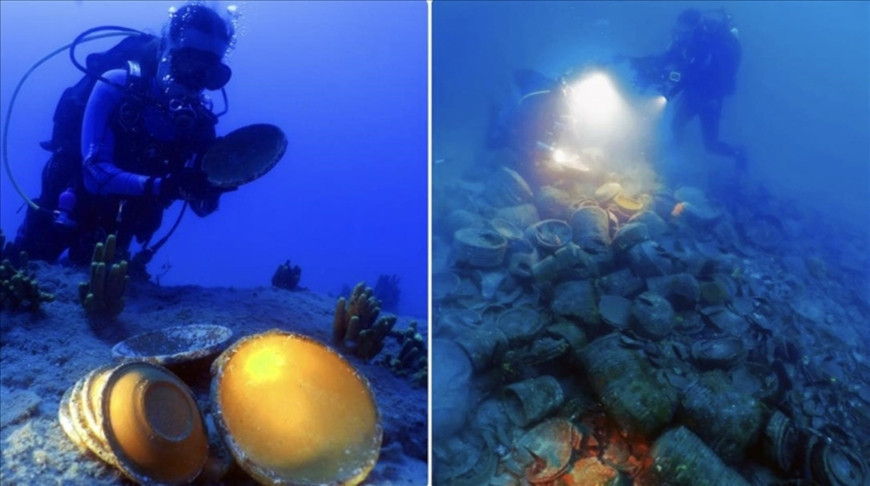
IZMIR, 23 December (BelTA - Anadolu) - A 1,500-year-old trade shipwreck
has been discovered off the coast of Ayvalik in Türkiye's Balikesir
province as part of the "Turkish Shipwreck Inventory Project: Blue
Heritage."
Using domestically designed and produced robotic underwater vehicles, researchers identified the wreck 2.5 miles off the coast.
Dating to the late 5th century, the wreck contains approximately 10,000 ceramic plates and is described as the largest "plate shipwreck" found in the Aegean and Mediterranean seas.
The ship’s open-sea location contributed to its remarkable preservation, according to authorities.
Harun Ozdas, director of Dokuz Eylul University's Center for Underwater Cultural Heritage and Maritime History (SUDEMER), said the ship likely sailed from North Africa or Cyprus toward Istanbul but sank in a storm off Ayvalik.
"The ship measures about 15 meters (49.2 feet) in length and 9 meters in width,” said Ozdas. He added alongside plates, a small number of amphorae, a type of container with a pointed bottom and characteristic shape and size, were also discovered in the wreck.
Ozdas said until today it was known that ceramics produced in North Africa, Egypt and Syria were taken to Anatolia, Greece or Italy, but there were no clear findings underwater regarding the trade.
"The ship’s primary cargo consisted of plates. Photogrammetric studies revealed around 10,000 plates on the surface," he said.
This untouched wreck is "significant," offering a "rich and diverse collection," added Ozdas .
Using domestically designed and produced robotic underwater vehicles, researchers identified the wreck 2.5 miles off the coast.
Dating to the late 5th century, the wreck contains approximately 10,000 ceramic plates and is described as the largest "plate shipwreck" found in the Aegean and Mediterranean seas.
The ship’s open-sea location contributed to its remarkable preservation, according to authorities.
Harun Ozdas, director of Dokuz Eylul University's Center for Underwater Cultural Heritage and Maritime History (SUDEMER), said the ship likely sailed from North Africa or Cyprus toward Istanbul but sank in a storm off Ayvalik.
"The ship measures about 15 meters (49.2 feet) in length and 9 meters in width,” said Ozdas. He added alongside plates, a small number of amphorae, a type of container with a pointed bottom and characteristic shape and size, were also discovered in the wreck.
Ozdas said until today it was known that ceramics produced in North Africa, Egypt and Syria were taken to Anatolia, Greece or Italy, but there were no clear findings underwater regarding the trade.
"The ship’s primary cargo consisted of plates. Photogrammetric studies revealed around 10,000 plates on the surface," he said.
This untouched wreck is "significant," offering a "rich and diverse collection," added Ozdas .













